Have a question? Read our most commonly asked questions below. Feel free to reach out if you have any further questions! We are here to help.
What is PITI?
PITI refers to Principal, Interest, Taxes, and Insurance. These are the four components of a monthly mortgage payment.
What is LTV?
Loan-to-Value (LTV) is a ratio between the amount of a loan and the lower of the sale price or appraised value expressed as a percentage. Loan amount/Sales price of home or appraised value (whichever is less)
What is DTI?
Debt-to-income is a ratio that expresses how much you pay in monthly obligations compared to your gross income. This is also expressed as a percentage. Monthly obligations/gross income.
What is Underwriting?
Underwriting is the process of evaluating a loan application to assess the risk involved for the lender. This involves analyzing a borrower’s credit, employment, assets, and debts.
What are closing costs?
- Closing costs are the fees associated with the close of your loan. These can be both recurring and non-recurring.
- Non-recurring fees include escrow fees, title insurance, appraisal fees, underwriting fees, notary fees, recording fees, and the transfer taxes.
- Recurring costs include prepaid interest, property taxes, insurance, HOA fees, etc. They are fees that will recur throughout the duration of the loan.
What are discount points?
Discount points are fees paid upfront to get a lower interest rate. Usually, one-point equals one percent of the loan amount and buys down the interest rate 0.25 percent.
Can I add closing costs to my loan?
Not necessarily. You can, however, put less money down and use some of the money you saved to pay your closing costs. Be aware, this may result in a higher interest rate or required mortgage insurance.
Why do you need to pull my credit?
Your credit profile is an essential factor in the loan process. Your credit score will determine the type of loan you will be approved for and the rate you could get. We pull a hard credit report, which means we pull from the three major bureaus to determine the most accurate score. Often, we find borrowers are concerned about the hit to their credit a hard pull incurs, however, if you are shopping around for rates you will only get dinged once in the span of 30 days.
Why do you require so much paperwork?
Since the mortgage meltdown of 2008, by law, these documents are required to prove a borrower qualifies for a loan. Leading up to the meltdown, many people “qualified” for home loans they were not financially able to pay back. As a result, banks became responsible for the millions of foreclosed homes. Now, we must be stringent in our qualification process.
What is Private Mortgage Insurance (PMI)?
PMI is required if your down payment for a conventional mortgage is less than 20 percent. PMI is meant to protect the lender in case there is a default on the loan. Once 20 percent of the principal has been paid, you can contact your lender to remove PMI.
What is Mortgage Insurance Premium (MIP)?
Mortgage Insurance Premium is required to close on an FHA loan. It’s usually paid as an upfront cost and as an annual premium. If your down payment is less than 10 percent, then you will have Mortgage Insurance for the life of the loan.
We Want To Hear From You – Apply Now To Connect With A Mortgage Consultant And Receive A Rate Quote That Fits Your Life Path.

1475 N. Broadway Suite 310
Walnut Creek, CA 94596
Company NMLS: 271603


